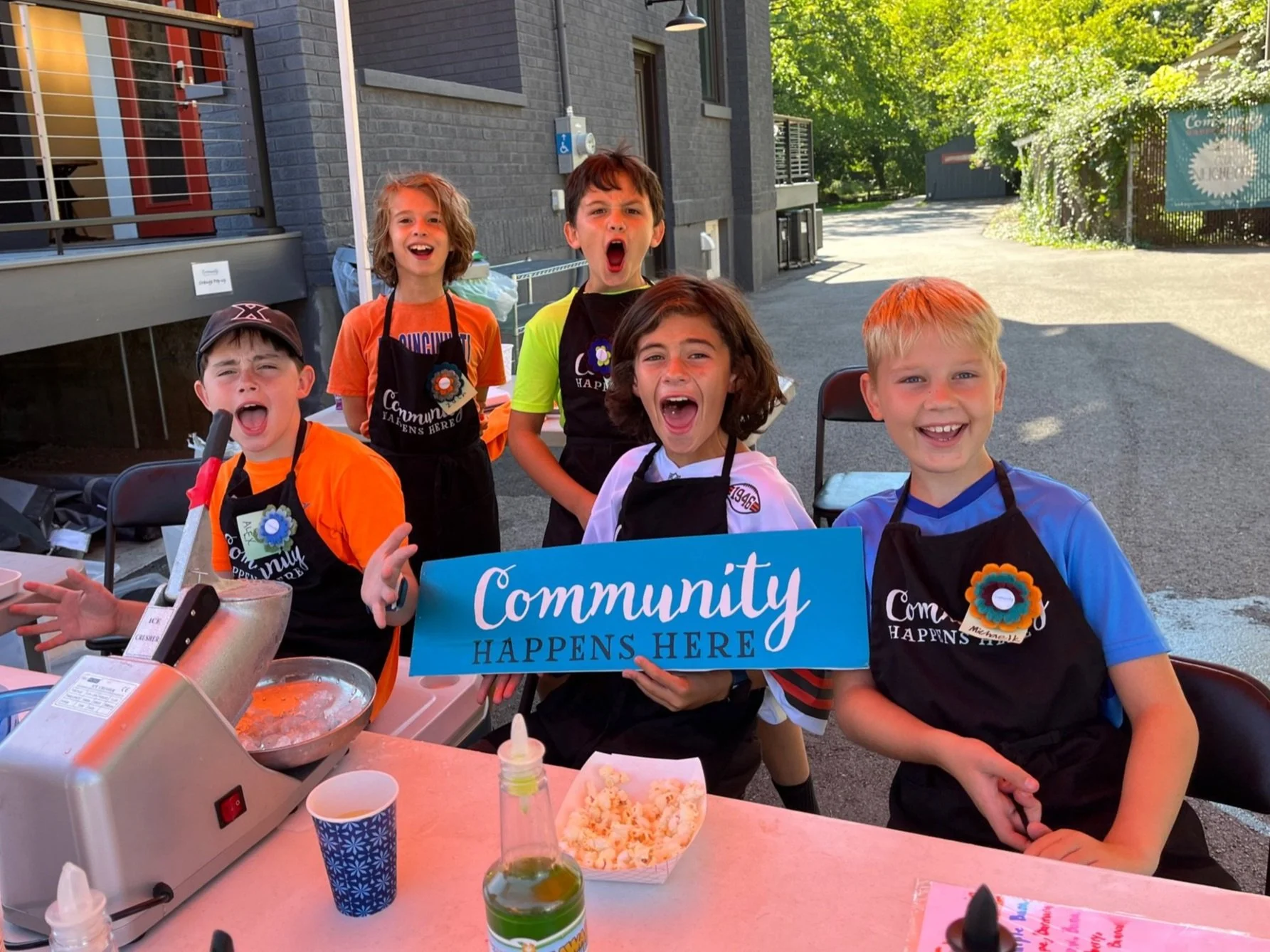Identifying Purpose In A Crisis
by Tyler Chernesky
I love my job.
What makes me love it is meeting all the people who step onto our campus — from the toddlers who scream with delight while they play on our new swing set to the seniors who stop by for coffee each Saturday morning. But this past week, amidst all the important conversations unfolding about young men, radicalization, toxic online culture, and the impact of social media, I've had one group of our regular visitors at the top of my mind: our pre-teen and teenage boys.
I’m such a fan of them. And I worry about them.
I’m convinced that many spaces in our physical and virtual world aren’t designed for them to grow and thrive. And I get nervous that so many “influencers” out there are giving them a skewed image of what they should aspire to be.
With all this on my mind, I’ve found myself revisiting the thoughts of an expert I tune into semi-regularly — a thinker I respect, particularly when it comes to evaluating the challenges faced by young men in this country.
His name is Scott Galloway.
Scott is an NYU professor who's grown quite a following in the podcasting universe. He's got a bold, blunt, data-forward communication style — and a raunchy sense of humor. While I don't sign off on everything he says (Which is the point, right? Especially for someone whose life mission is connecting people across difference), I appreciate his passion for what he terms the "crisis facing young men" in America. The fact is: I like to listen graciously and learn broadly. And I'm particularly drawn to Scott’s analysis of the challenges young men face.
When he makes his rounds through the major media media outlets, Scott’s quick to rattle off some devastating statistics: young men are four times more likely to kill themselves, three times more likely to become addicted, and twelve times more likely to be incarcerated. They’re falling behind in school, and increasingly find themselves exposed to voices and mentors who lead them towards all sorts of toxic thinking.
That's where Sidewalk Hospitality comes in.
The Little Dudes Who Get It
When I began working at Community Happens Here, I could see Sidewalk Hospitality was something special. What I didn't expect was how much working with our volunteers — especially our middle and high school-aged young men — would show me the antidote to what Galloway’s diagnosed.
These dudes show up every week with incredible energy that's ready to be channeled towards something productive. While they’re here, they aren't just volunteering; they're learning to look out for others, to leverage their skills for the good of their neighborhood, and to connect with people don’t look or think like them.
Community Happens Here provides a positive space for them to grow. We encourage their energy, and their sensitivity. We show them what it means to contribute to and be supported by their community.
Each week, we get the precious opportunity to model a better way of being in the world.
While they’re here, they don't have to hide their feelings behind chatroom bravado or focus all their zeal into video games (though I love that they game… Especially when they tell me they play Fortnite, because Fortnite helps pay my bills.) Instead, they get to see that a balanced, healthy life includes service and responsibility, alongside all the other things they enjoy.
There's something revolutionary about what happens here every Saturday.
In a world where so many are isolated behind screens and siloed into homogeneous sub-communities, we create space for real, diverse, face-to-face interaction. At Sidewalk Hospitality, our teens practice the kind of social skills that they just can't develop at home, by themselves. They learn to make eye contact, start conversations with strangers, read social cues, and navigate the beautiful messiness of human interaction.
The Ripple Effect
Here's what gets me most excited: the young men who volunteer regularly aren't simply being “helped” by volunteering, they're learning to help others. They're developing what Galloway calls "surplus value,” creating more than they consume, giving more than they take.
When they leave our Saturday gatherings, they carry with them a different understanding of what it means to be a young person in this world because they’ve experienced the satisfaction that comes from service, the confidence that comes from being needed, and the social skills that come from genuine human connection. They've learned that their energy — that sometimes restless, always powerful energy that can so easily get channeled into destructive directions — can be a force for incredible good. They've discovered that their willingness to take risks and make a splash aren't weaknesses to hide, but strengths that can help them connect with and serve others.
Beyond the Screen, Into the Light
In a world where young men are increasingly isolated, angry, and disconnected, Sidewalk Hospitality offers something “radical” in a different way: a place where they can show up as their full selves, contribute meaningfully, and learn what being a healthy, whole person actually looks like.
To be clear: We're not trying to solve the entire crisis facing young men. We can’t. We're just one hyper-local neighborhood organization doing our small part.
Still, every Saturday, I get to watch our young dudes discover that aggression and cynicism aren’t cool, and that showing up, serving others, and using your strength to make your community better is.
And that… that’ll make you love your job.
If you’re curious about Scott Galloway’s thoughts about the crisis facing young men in our country, I’d point you to this recent interview on The View. It’s a 6 minute introduction to a broader collection of ideas he’s expressed in a variety of podcasts and interview.
And if you’re curious about the beautiful work at Community Happens Here, you can always stop by Sidewalk Hospitality. We’re here every Saturday from 11:00am - 1:00pm.

